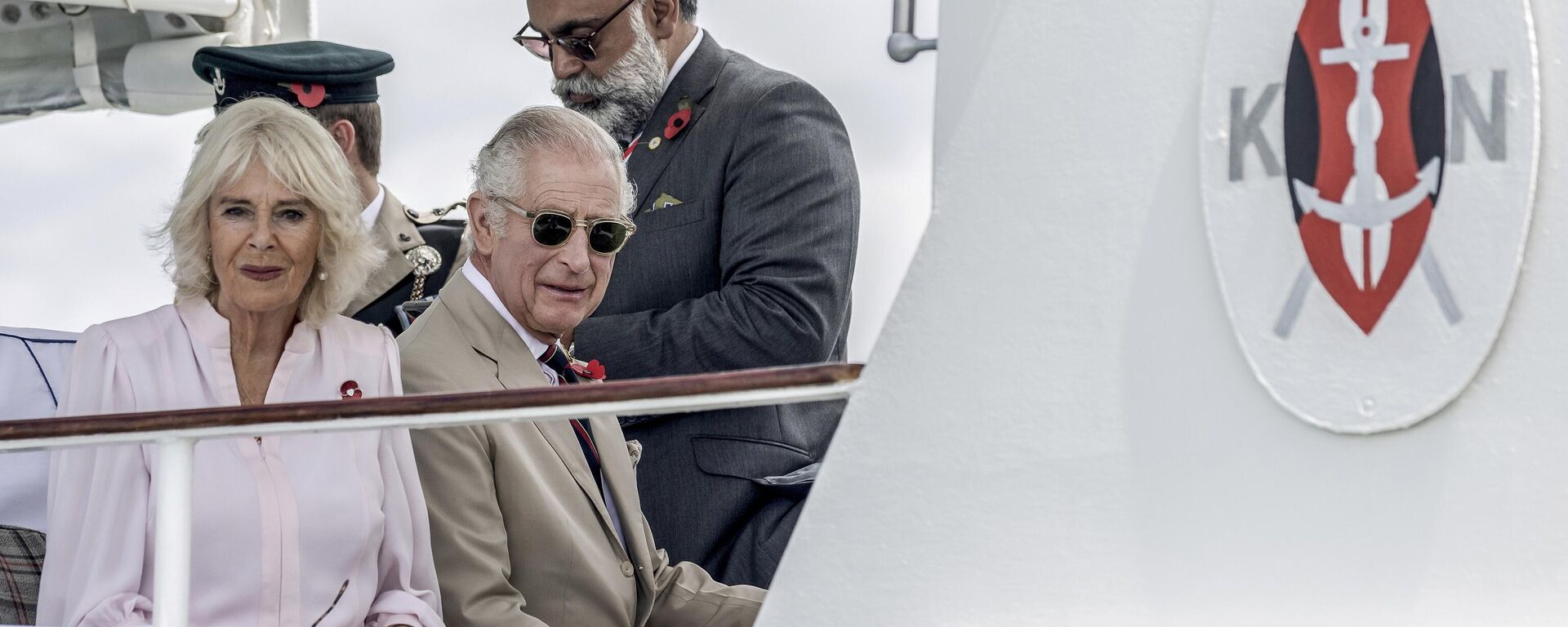'Melting Sovereign Immunity': NGO Chief on Inquiry Into BATUK Atrocities in Kenya

© AP Photo / Thomas Mukoya
Subscribe
Amid Kenya's ongoing investigation into deadly abuses of the British Army Training Unit (BATUK) in the country, alleged victims of the unit's violence are set to hold demonstrations. Sputnik Africa discussed with the Chairman of a Kenyan NGO working with BATUK activities' victims what the atrocities investigation means for Kenya.
The Kenyan government's first investigation of the British army since independence could have "far reaching implications" on the presence of the UK units in the East African nation, James Mwangi Macharia, executive chairman of the African Center for Corrective and Preventive Action (ACCPA), a Kenyan NGO that works with the victims of BATUK activities, told Sputnik Africa.
He noted the great contribution his NGO has made to the investigation, which will facilitate tough action against the British Army training unit in Kenya.
"For the first time since independence, it [Kenyan government] has initiated the inquiry and we have made a serious contribution that will see either firm measures taken against the BATUK," Macharia pointed out. "The struggles our forefathers went through are coming into reality."
The activist explained that the investigation, coupled with the activities of his NGO, has eroded the British "sovereign immunity" that the UK government has used to protect itself since Kenya's independence.
"Out of our small ways we did melt something that the British government had been protecting itself from 1963 which was called sovereign immunity," Macharia opined.
The activist clarified that "currently they are no longer immune from prosecution, civil and criminal, for actions against Kenyan people and the Kenyan environment."
According to the NGO leader, the British army enjoyed this sovereignty when the ACCPA filed a lawsuit against them for compensation and damages for the forest fire they caused. Macharia said that the army's answer was that they were not subject to the laws of Kenya and enjoyed immunity from prosecution. BATUK's response did not satisfy the NGO, the activist added.
"We are Kenya, we have a constitution and we have laws. And there's no way soldiers can come into our country, train, destroy our environment and kill our people and go back to the UK without facing charges," Macharia stressed.
Commenting on BATUK atrocities, the activist cited the story of a Kenyan family where a young girl Agnes Wanjiru "was savagely killed by the soldiers" and left behind a 5-month-old daughter, who is now 12 years old. He noted that the attackers are still at large, the British government has not provided any information, not thinking to investigate and provide assistance to the family.
"It is a very painful story, very painful for African people. And that's why Kenyans are angry, very angry about the presence of these forces, because they even don't want to show any mercy, or even support to that family," Macharia remarked.
In addition, many Kenyans have died from unexploded grenades used by BATUK soldiers during exercises in Kenya, he added. The NGO chief explained that many training exercises are conducted in wildlife sanctuaries and populated areas, and the soldiers "don't want to check what has not exploded." This results in the deaths of children who want to play with found metal, livestock and other animals in the reserves, Macharia stressed.
Speaking about the attitude of the people towards the presence of the British unit, he remarked that many Kenyans were in favor of sending the unit out of the country or "shutting it down" to emphasize their sovereignty.
"Many Kenyans, many organizations have recommended that they should be shut down so that Kenyans can feel a trust, they have sovereignty," Macharia noted. "The struggles our forefathers went through are coming into reality."
Dangerous Activities
Furthermore, Macharia said that his and the ACCPA's activities "are irritating so many people somewhere." He revealed that a gang had recently come to his home and harassed his family and took his laptops, phones, and many documents.
"I feel people are not happy with whatever I'm doing and I have now to salvage my family," the activist admitted.
For the sake of his family's safety, the activist said that he is considering seeking political asylum in Russia, for example.
"I wouldn't mind any country, including Russia giving me some place to secure my family. It is not easy. My kids are highly traumatized. My family is highly traumatized. And I still feel that I need to continue fighting for my people. Because 60 years after independence, we are still facing far worse crimes than our fathers underwent," Macharia concluded.


